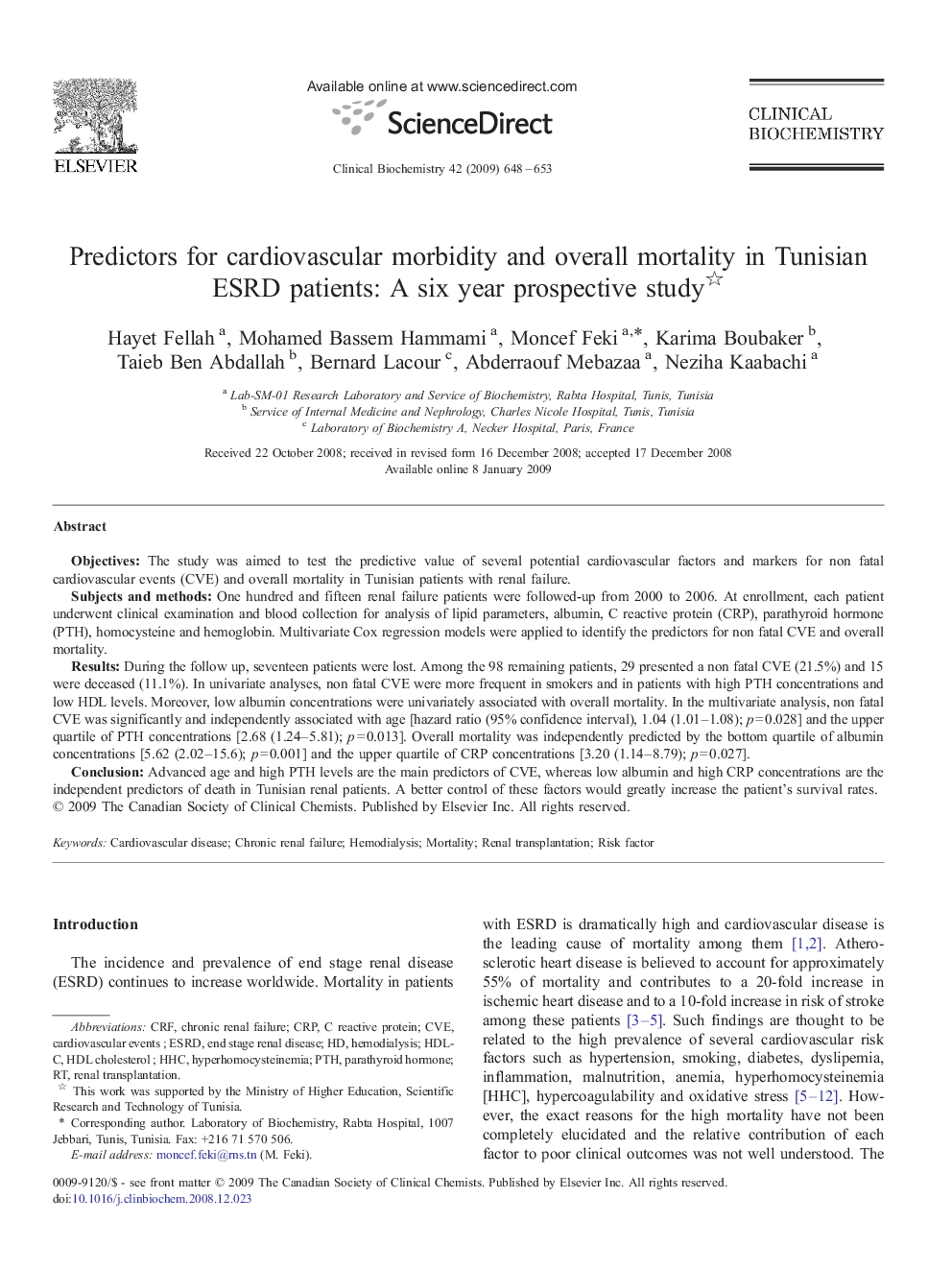| Article ID | Journal | Published Year | Pages | File Type |
|---|---|---|---|---|
| 1971132 | Clinical Biochemistry | 2009 | 6 Pages |
ObjectivesThe study was aimed to test the predictive value of several potential cardiovascular factors and markers for non fatal cardiovascular events (CVE) and overall mortality in Tunisian patients with renal failure.Subjects and methodsOne hundred and fifteen renal failure patients were followed-up from 2000 to 2006. At enrollment, each patient underwent clinical examination and blood collection for analysis of lipid parameters, albumin, C reactive protein (CRP), parathyroid hormone (PTH), homocysteine and hemoglobin. Multivariate Cox regression models were applied to identify the predictors for non fatal CVE and overall mortality.ResultsDuring the follow up, seventeen patients were lost. Among the 98 remaining patients, 29 presented a non fatal CVE (21.5%) and 15 were deceased (11.1%). In univariate analyses, non fatal CVE were more frequent in smokers and in patients with high PTH concentrations and low HDL levels. Moreover, low albumin concentrations were univariately associated with overall mortality. In the multivariate analysis, non fatal CVE was significantly and independently associated with age [hazard ratio (95% confidence interval), 1.04 (1.01–1.08); p = 0.028] and the upper quartile of PTH concentrations [2.68 (1.24–5.81); p = 0.013]. Overall mortality was independently predicted by the bottom quartile of albumin concentrations [5.62 (2.02–15.6); p = 0.001] and the upper quartile of CRP concentrations [3.20 (1.14–8.79); p = 0.027].ConclusionAdvanced age and high PTH levels are the main predictors of CVE, whereas low albumin and high CRP concentrations are the independent predictors of death in Tunisian renal patients. A better control of these factors would greatly increase the patient's survival rates.
